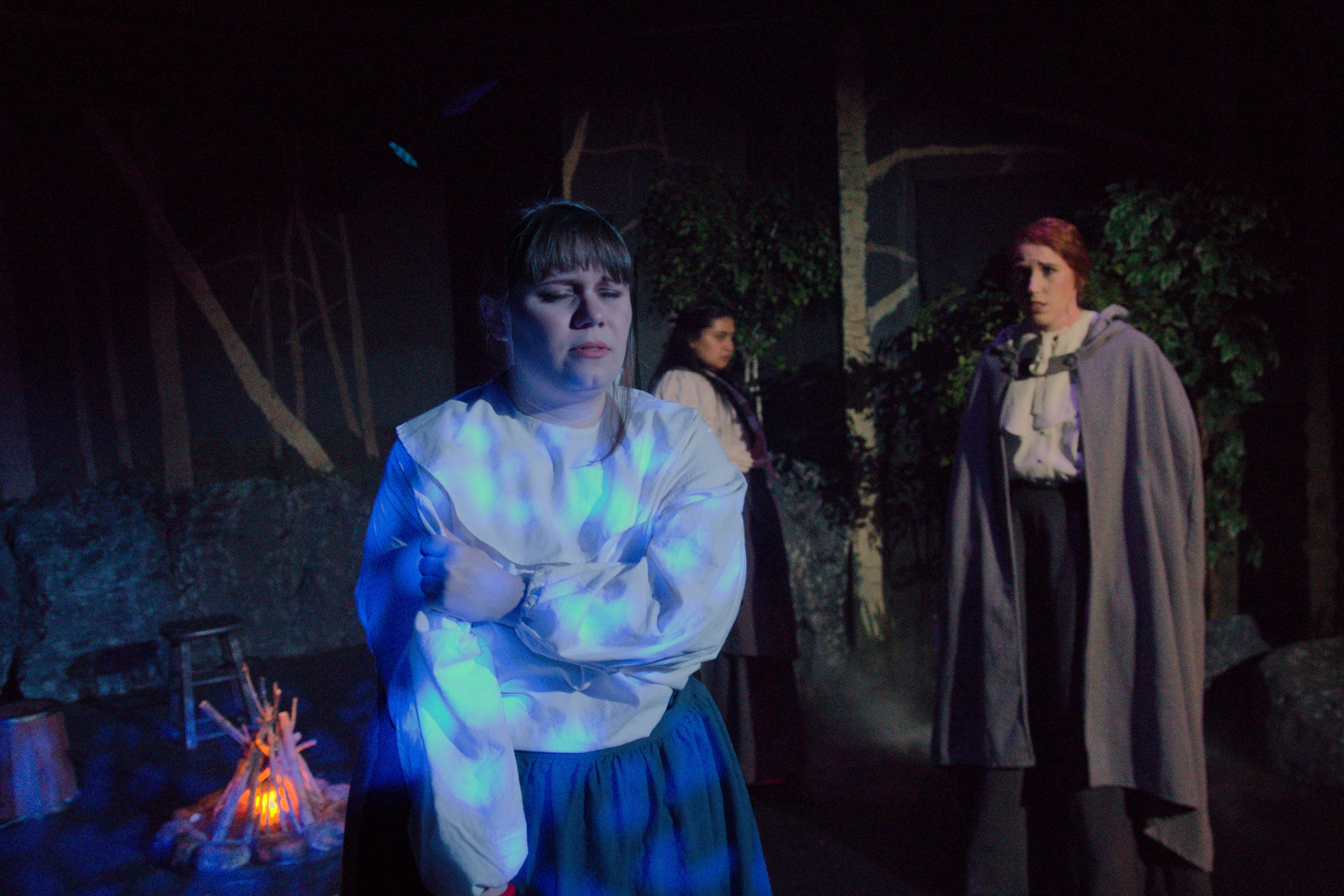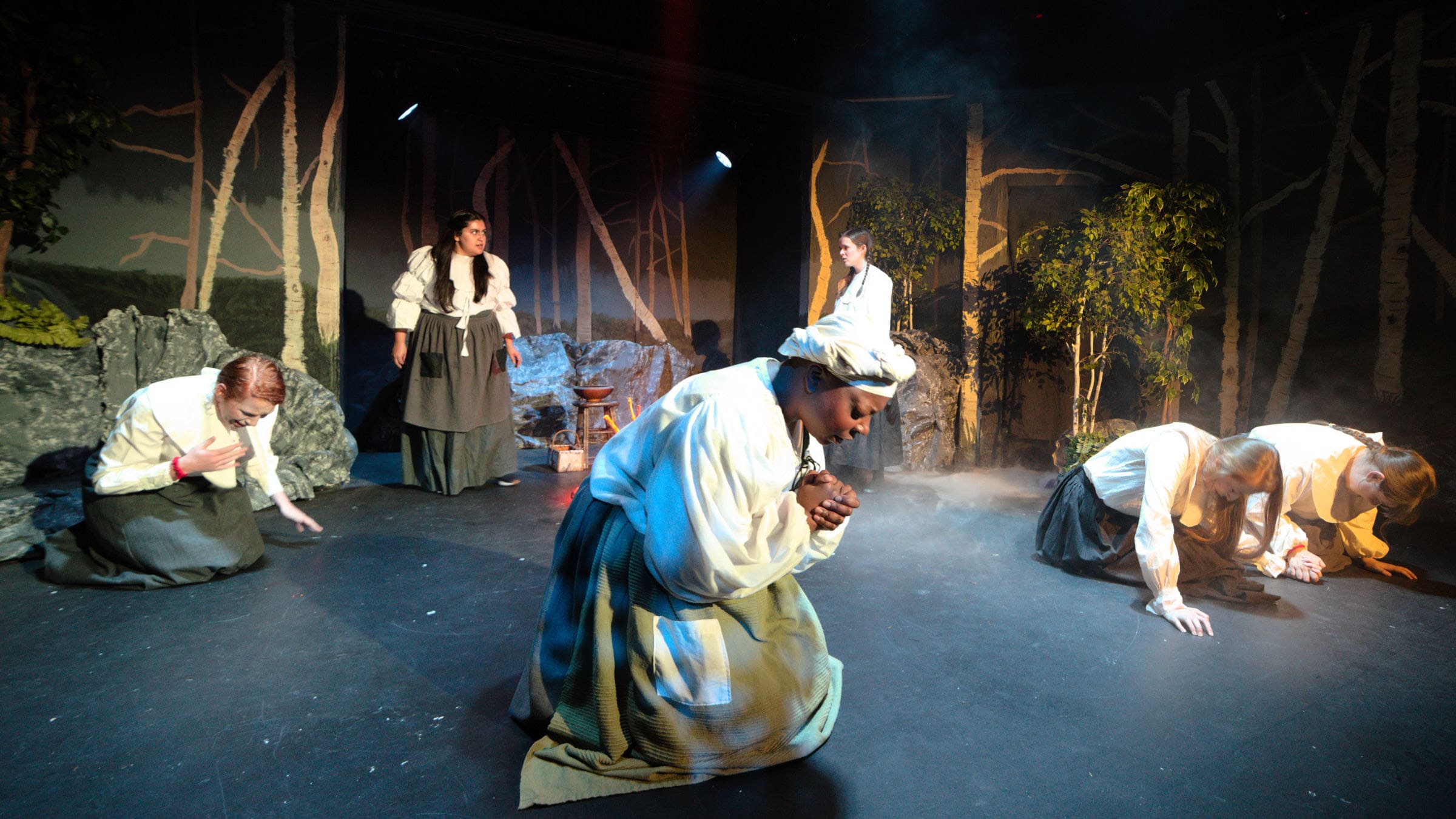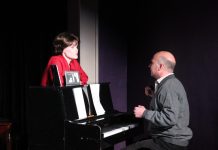The peer pressure of in-groups, man. Is there anything more toxic? Turns out, there is. This is the central theme of Afflicted: Daughters Of Salem, which is set before the infamous Salem Witch Trials begin, and even before the events of the perhaps better-known Arthur Miller classic, The Crucible. That chain of events has become emblematic of American blame-casting and the damage of lying in a credulous environment.

With political power-mongering, PTSD, the weather, land-grab attempts and bad grain among the potentials cited as underlying cause of the phenomenon, the accusations, “trials,” and, eventually, deaths of a number of people of various ages and significance in the community has become legend, and a tourist attraction for Massachusetts. That finger-pointing should have been received with such eagerness, the veracity of the girls’ statements so unquestioned, and “wrongdoers” punished with such swiftness and finality indicates underlying malevolence in the civil power structure at its core.
A short timeline: In 1631, a handful of young girls in a conflicted Massachusetts community act weirdly and blame other people for it. In 1632, a twisted system of “justice” hangs 19 witches and presses a man to death. In 1953, Arthur Miller writes The Crucible, drawing parallels with McCarthyism. In 2014, playwright Laurie Brooks considers the point of view of the teenaged accusers. In 2019, producer Maureen Rogers brings Brooks’ Afflicted: Daughters Of Salem to Laurel, Maryland’s Laurel Mill Playhouse.
Laurel Mill Playhouse’s tech may not be fancy or cutting edge, but it’s sturdy, appropriate, and sometimes revelatory; in short, it’s effective. The soundscape, designed by Ashanti Cooper and Daniel Johnston, keeps us apprised of place and time of day. Scenic Designer Ann Hull’s lovely set has depth and texture, and keeps our attention on the woods. The fog effect, used sparingly, is evocative. Lighting Designer Jen Sizer gives us mood and commentary with a few dramatic techniques. The seating is comfortable, though sometimes squeaky, so one is a little hesitant to move much. This seems to add to the tension of the piece, which is performed at a brisk pace and without intermission.
Central in the stories of both Arthur Miller and Laurie Brooks is Tituba, a slave woman owned by Reverend Parris. She is brought to beautiful, believable life by Ashanti Cooper, whose rich voice and commanding physical presence illustrate the magnetism of a single individual. Opposing her is the intermittent terrifying sermonization of Jim Berard as the Reverend Samuel Parris. Berard’s unsympathetic role represents a restrictive patriarchal social structure as well as a politically powerful authority figure. In tiny, nearly inconsequential roles are Maia Krapcho and Lenny Dinerman as Sarah Osborne and Thomas Putnam, beautifully costumed and quietly comported.
The titular “afflicted” girls are written more as archetypes than unique characters, but the talented women portraying them give a bit of depth to recognizable teen dynamics. Julie Rogers as Mary Warren, historically the eldest, is a very convincing timid follower. Megan Safko gives sturdy presence to Mercy Lewis, a 16-year-old servant in the Putnam household who has aspirations that don’t seem particularly lofty by today’s standards. Her diction, less learned than that of the other girls, is delivered with excellent emotion and perfect clarity. Betty Parris, whose physical condition opens Act I of The Crucible, is played with whiny entitlement by Emily Groves. She is an effective irritant, and Groves captures the essence of a ten-year-old tattletale tagalong. Ann Putnam, who was 13, is played with anguished expressiveness by Sarah Luckadoo, devoted friend to Abigail Williams, here portrayed as a colonial Top Girl by Malissa Cruz Romero. Romero’s range, conviction, and glibness give us a relatable protagonist who nevertheless alienates us by the show’s end.

I like a good ghost story. This one is well done, with the uncomfortable awareness that there are actual ghosts, both specific and metaphoric, from our own personal history as a collective American culture. Underlying the action, while not especially highlighted, is the arbitrary line between superstition, religion, witchcraft, and medicine. Director Daniel Johnston’s pacing and the emotive excellence of the cast serve to immerse us in a stifling environment in which we can nearly taste the desperation.
In this powerfully done production of Afflicted: Daughters Of Salem, Laurie Brooks and Daniel Johnston reframe phenomenon that has haunted and puzzled us for two centuries as backlash against systemic suppression. In a world where teenagers are dying by suicide because of how they’re treated on social media, the surprise is that we ever were surprised.
Run Time: One hour, without intermission.
Afflicted: Daughters of Salem plays Fridays and Saturdays at 8 PM and Sundays at 2 PM through November 10th, 2019 at Laurel Mill Playhouse, 508 Main Street, Laurel, MD. Purchase tickets online.




